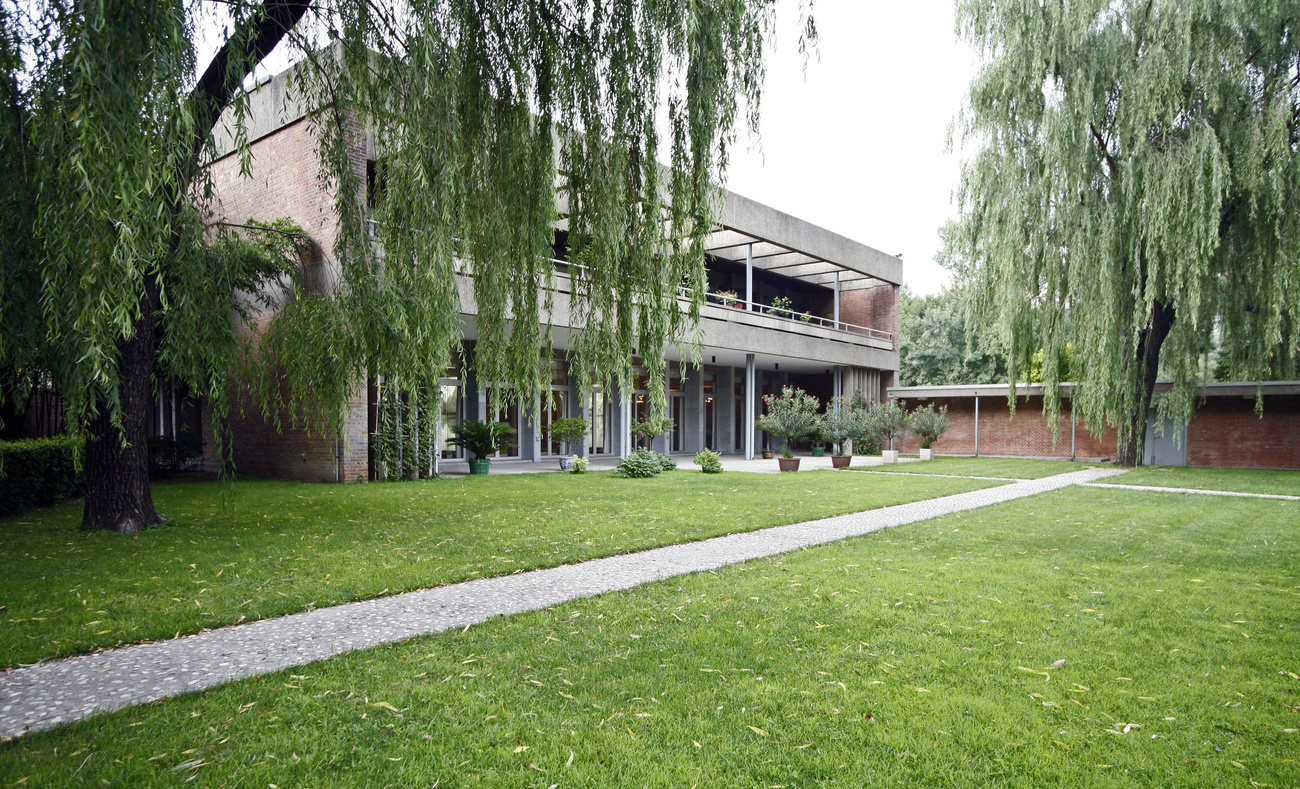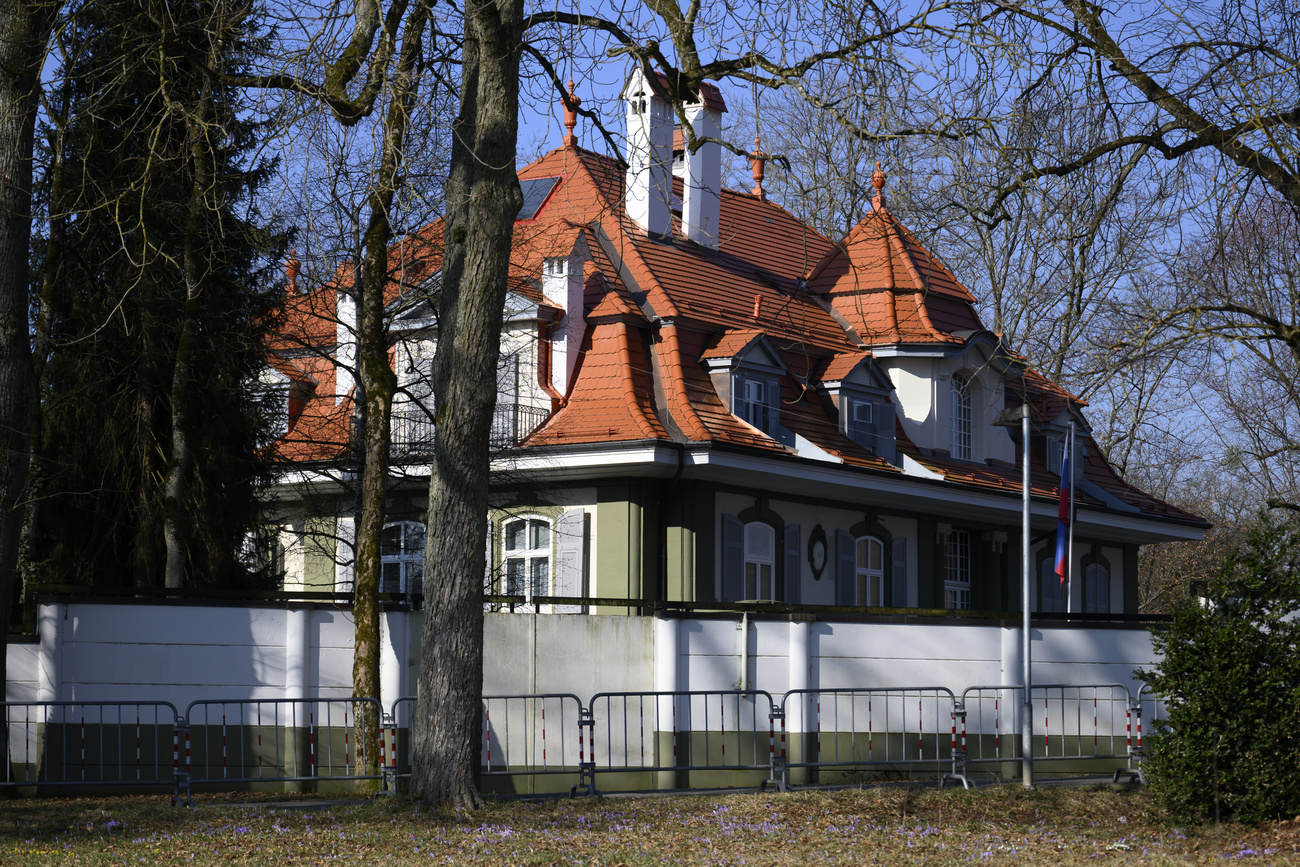Swiss Federal Audit Office criticises construction plans for embassy in Beijing

The Swiss Confederation should go over its books on the new building plans for the embassy in Beijing, starting with the size of the project. That is the advice of the Swiss Federal Audit Office. The planning is currently on hold, and the responsible department largely rejects the criticism.
According to the report of the Swiss Federal Audit Office (SFAO) on Wednesday, the buildings of the Swiss embassy in Beijing, which date back to the 1970s, are to be replaced. The Swiss foreign ministry and the Federal Office for Buildings and Logistics (FBL) are responsible for the project.
According to the SFAO, the project is currently on hold because the Chinese authorities have not yet given their approval. The Swiss foreign ministry and FBL had decided to wait before applying to parliament for a loan. The SFAO argues that the project does not currently meet the criteria of economy and efficiency.
‘Target values not achieved’
The federal government has standards for the number of square metres per workplace, the ratio of floor space to usable space and the size of individual offices. However, the SFAO states that they are not used in planning and are not checked by the FBL. “The target values are not being achieved and the surfaces are not being used efficiently,” it said in a statement.
+Cost-cutting at foreign ministry raises fears among Swiss Abroad
The FDFA and the FBL must decide on an adjustment of the project on the basis of a cost-benefit analysis, the SFAO demands. It notes that the project provides for 132 workplaces. When the new building plans were launched, the embassy in Beijing had 89 employees, but with an upward trend.
However, this changed with the Covid-19 pandemic. In 2022, 64 people were still working at the representation in Beijing. In its predominantly critical statement on the report, the Swiss Foreign Ministry argues that plans are being made for the next 40 years. The comparison with the situation still marked by the Covid-19 pandemic is misleading.
Costs have almost doubled
The Swiss foreign ministry also questions the relevance of comparing office space of the federal administration in Switzerland and in a representation abroad “on the basis of key figures”. Embassies abroad have very different tasks and activities, which also require different use of its spaces.
The FBL criticises the audit at an “extraordinarily early stage” of the project, which is scheduled to last 40 years. When planning, the audit office takes into account not only economic efficiency, but also sustainability criteria such as society and the environment. The decisive factor is the consideration of the entire life cycle.
The estimated costs have risen: at the time of the project competition, they were CHF25 million ($28 million), but according to the SFAO, they have now almost doubled to CHF48 million. According to the FBL, the reasons for this are the adaptation to Chinese standards, inflation, taxes and adjustments to the project.
This justification is not sufficient for the SFAO. It demands better documentation of the cost development. Specifically, inflation must be systematically taken into account and presented in a comprehensible manner.

More
Swiss Abroad, how are you doing?
This news story has been written and carefully fact-checked by an external editorial team. At SWI swissinfo.ch we select the most relevant news for an international audience and use automatic translation tools such as DeepL to translate them into English. Providing you with automatically translated news gives us the time to write more in-depth articles. You can find them here.
If you want to know more about how we work, have a look here, and if you have feedback on this news story please write to english@swissinfo.ch.

In compliance with the JTI standards
More: SWI swissinfo.ch certified by the Journalism Trust Initiative






















You can find an overview of ongoing debates with our journalists here . Please join us!
If you want to start a conversation about a topic raised in this article or want to report factual errors, email us at english@swissinfo.ch.